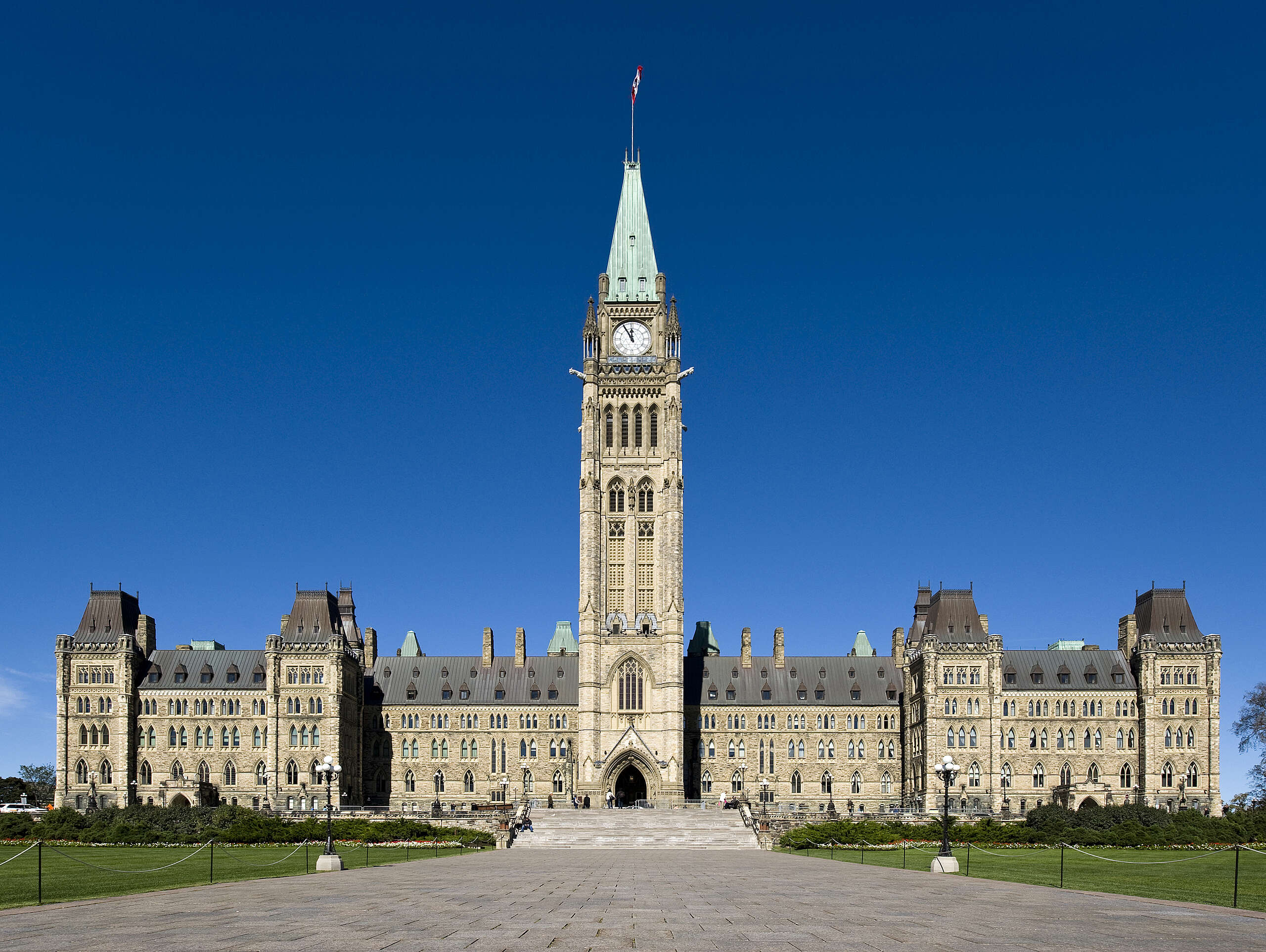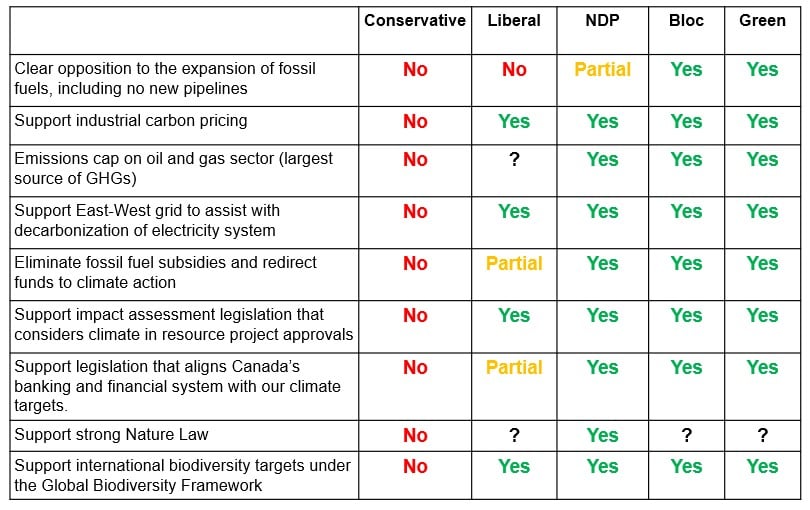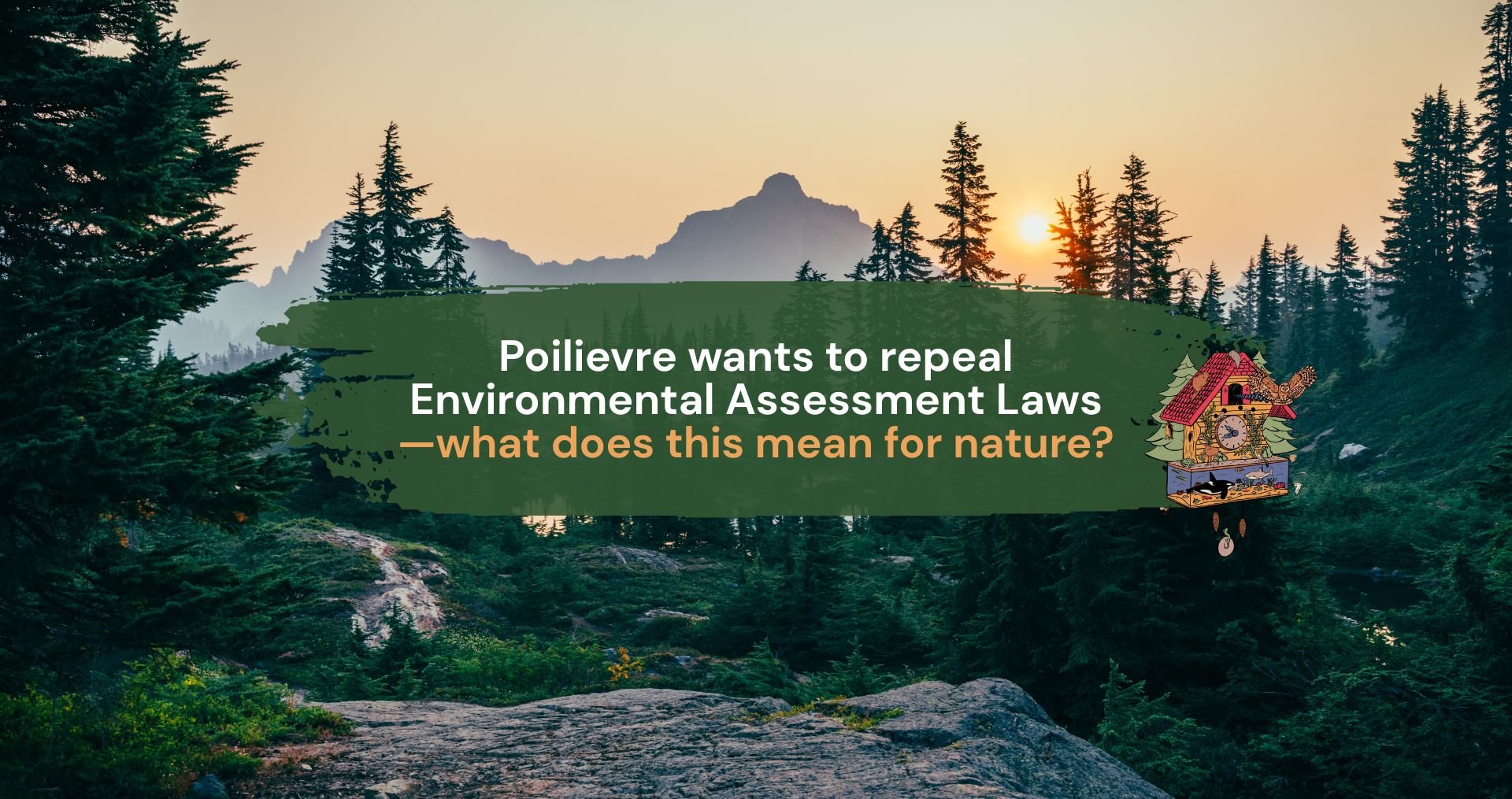The climate crisis is upon us. More and more of us are feeling the impacts; even moose. This iconic species that grace the Canadian wilderness is suffering from the disease, droughts and fires brought on by climate change. And they are suffering from the drivers of climate change too – deforestation, extractive development and more.
In Canada, like everywhere across this stunning and troubled planet, Indigenous Peoples are standing up for and protecting the lands, waters and ecosystems we all depend on. On Anishnabe territory in western Q, a group of grassroots Anishnabe folks, from the Algonquin Nation, are taking action to protect the moose populations in and around La Verendrye Park which have reportedly declined by 35% in the past 12 years.
Waba Moko (whose English name is Shannon Chief) formed the Anishnabe Moose Research Committee in fall 2021 to bring the circle of nine communities of the Algonquin Nation together to protect the moose from the many causes of decline, including sports hunting.
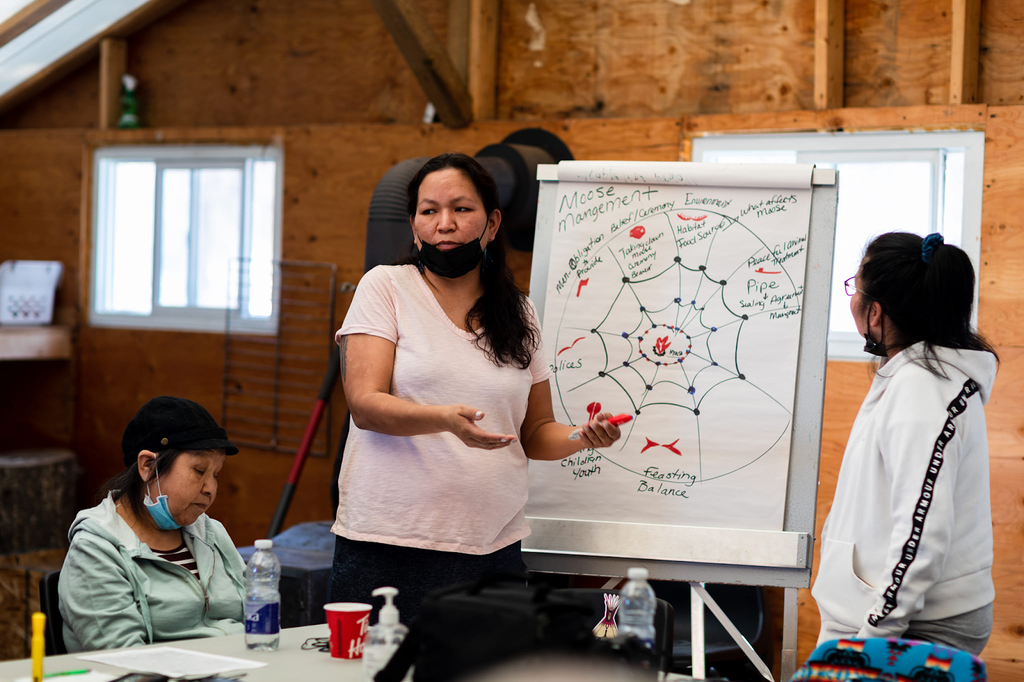
When asked what inspired this project, Waba explained that when she was a child, she would see moose all the time, in lakes, crossing back roads, moving through the park. In winters she would sometimes see them in packs of 14 or more. But over the last decade and a half, Elders began to notice that there were less moose to be seen and they advised that something needs to be done for the moose.
“When the elders speak,” Waba explained, “they’re watching over us. That’s what they do. They’re the caretakers of the people. They guide us doing what needs to be done”. Through 2018 and 2019, folks in these communities heeded the Elders’ calls for action and they began to fight for a moratorium on sport hunting. They began by handing out educational brochures to sports hunters entering the territories. When that didn’t work and the hunting continued and the Q governments continued to refuse to set in place a moratorium, these communities enforced their own moratorium, enacting their own governance systems and laws while blocking access roads to the hunting areas. In spite of the violence and aggression they faced from settler sport hunters, they held firm and got part of the result they were looking for. In September 2021 the government moved to suspend sport hunting until fall 2023.
Whether this moratorium will be extended beyond 2023 depends on the results of studies that were to be done. Concerned that no such studies were taking place, Waba and the others created a grassroots, Anishnabe-led Moose Research Committee to lead this research themselves. The committee has partnered with Research for the Front Lines, the network which I coordinate, of researchers who offer their time and skills pro bono to support the work of Indigenous communities and others on the front lines of the fight for environmental and climate justice in so-called Canada.
By conducting this research themselves rather than relying on government studies, this committee is able to ground the research in guidance from Elders, in local knowledge and in Indigenous research methodologies. They are also drawing on Western Scientific methods as well, when appropriate.
The committee is in the process of visiting all 9 communities in and around La Verendrye Park to gather and document knowledge and observations from Elders, hunters and other Knowledge Keepers about the state of the moose and the causes of decline. These workshops take place over several days and include ceremony and shared meals of traditional foods.
Waba explains that the goals of the research project go beyond informing decision-making about the Moose Moratorium. It is the committee’s hope that this work can support the creation of an Anishnabe-led moose management plan and ultimately, “to protect the moose and our food sovereignty and to bring our communities together”.
The traditional cooking structure where the meal was prepared during the research workshop in Pikogan in May 2022. Photo credit @Marie-Raphaëlle Lebond
At a recent Solidarity Circle event hosted by the Climate Justice Organizing Hub, I asked Waba why the Moose are so important to her and her community and Nation. “First of all,” she explained, “for us, it’s a way of life, to bring healthy meat to our people and feed our children. So it’s about food sovereignty. Moose meat is really good and healthy. When you think of the history of the moose and my people, we go far, far back in time. Sovereignty was our way of life that sustained us. Moose kept us alive, gave us food and shelter, gave us clothes, mukluks, baby clothes, moccasins, drums. They give us ceremony, economy, education, stories … basically: a way to live. The way they protect and provide for us, we have to do the same thing for them now”.
Waba went on to explain that many women in her community have been having dreams; dreams in which moose comes to them and are asking for help. “This is the most important reason for doing this work,” she told us. “The moose are asking for our help. We have a responsibility to take care of the moose on our territories”.
This profound interconnection between moose and Anishnabe people has been disrupted by colonialism, land theft and extractive development. Waba makes clear that “our communities have consistently faced settler government control, broken promises and unwanted industrial projects. Government and industry have been extracting resources from our territories, taking from these communities and lands and harming the moose, and offering very little in return. This research project will gather the information needed to help the Algonquin people fight for our rights to take care of the moose and the land and to manage the impacts that threaten the moose’s existence – including logging, climate change, disease and pests. Our communities are reclaiming the power to manage these lands. The research will help support this important work”.
This Anishnabe Moose Research Project is a powerful example of how community-led research can transform decision-making, unite people, and actively protect species and ecosystems and communities’ rights and wellbeing. But research is costly and labour intensive. Where university researchers have access to million-dollar government grants, community-led researchers do not. And so the Anishane Moose Research Committee has been crowdfunding and they would love your support.
You can help support this transformative, powerful project by donating today. Between now and mid June, you can also help support the project by bidding in this Art Auction.
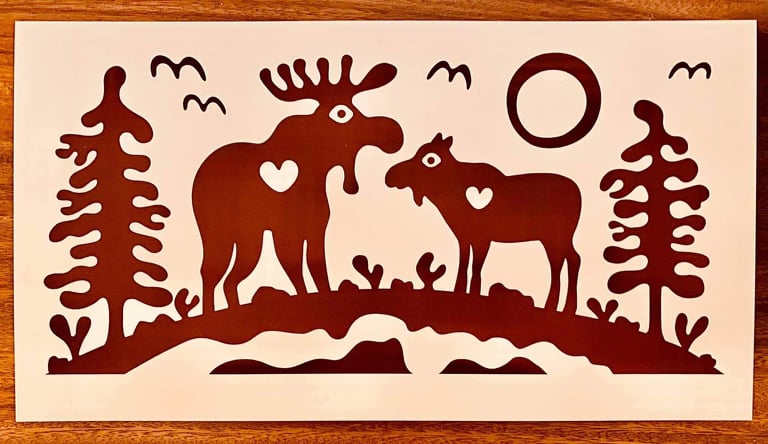
Waba requests your support in protecting this moose. She describes the moose as “such a beautiful animal. Very sacred. Very strong. Yet humble and quiet. If we don’t try to help them, they could be gone within five years. We need to stand up and fight for them. Our Nation is trying to do our part and the ways in the ways that we know how. But we need other people’s support now. The support we’ve been getting, I really appreciate it. Our Elders will appreciate it. Our children will appreciate it. Our Nation will appreciate it. The moose will appreciate it too”.
Donate here:
Bid in the Art Auction here: https://www.charityauctionstoday.com/auctions/Anishnabe-led-Moose-Research-Project-30457/items/isaacmurdochframedprintmooses-463909
Buy #MooseMoratorium T-Shirts here: https://stores.inksoft.com/small_change_fund/shop/home
Volunteer with Research for the Front Lines here: www.researchforthefrontlines.ca
This blog was written by Dr. Jen Gobby, co-director of Research for the Front Lines.

